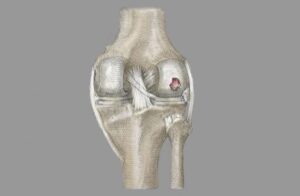The realm of medical billing involves a complex interplay of healthcare providers, patients, and insurance companies. Among the various challenges faced by medical billing professionals, insurance claims processing stands out as a critical aspect. Effectively managing insurance claims is essential for healthcare facilities to receive timely reimbursements and maintain financial stability. In this comprehensive guide, we will explore common problems that arise during insurance claims processing in medical billing and provide actionable solutions to address them.
Insurance Claims Problems in Medical Billing
As the healthcare industry continues to evolve, the ability to manage insurance claims effectively is paramount for maintaining financial stability and delivering high-quality patient care. Insurance Claims Problems and Solutions in Medical Billing serves as an invaluable resource for those seeking insights into the challenges of claims processing and the strategies to overcome them, ultimately contributing to a more streamlined and efficient healthcare system.
Problem 1: Common Causes of Insurance Claim Denials
Understanding the Reasons Behind Claim Denials
Claim denials are a recurring headache for medical billing practitioners. These denials can stem from a range of issues, including missing information, incorrect coding, and insufficient documentation. Understanding the root causes of denials is crucial for developing effective solutions.
Strategies to Prevent Common Denial Causes
To mitigate the risk of claim denials, meticulous attention to detail is paramount. Implementing robust pre-submission checks can help identify and rectify potential issues before claims are submitted. Staff education and training in proper coding practices and documentation standards can significantly reduce coding-related denials.
Problem 2: Incorrect Coding and Its Impact on Claims
The Role of Coding Accuracy in Successful Claims
Accurate medical coding is the backbone of successful insurance claims. Incorrect coding can lead to claims being rejected, delayed, or under-reimbursed. It’s essential to ensure that the codes accurately reflect the services provided and the medical conditions treated.
Tips for Ensuring Accurate Medical Coding
Regular training and upskilling of medical coding staff are fundamental to maintaining accurate coding practices. Collaboration between coders, clinicians, and billing personnel can clarify any ambiguities in medical records, leading to more precise code selection. Investing in advanced coding software can also streamline the process and minimize coding errors.
Problem 3: Insufficient Documentation and Claims Rejections
The Importance of Comprehensive Documentation
Thorough and detailed documentation is vital for substantiating the medical necessity of services rendered. Incomplete or vague documentation can result in claims being rejected due to insufficient evidence.
Enhancing Documentation Practices to Prevent Rejections
Providers and clinicians must be educated about the importance of complete documentation. Implementing standardized documentation templates can guide healthcare professionals in capturing essential patient information, diagnoses, and treatment plans. Regular audits of medical records can help identify areas for improvement in documentation practices.
Problem 4: Delays in Claims Processing and Revenue Cycle
Identifying Bottlenecks in Claims Processing
Delays in claims processing can disrupt the revenue cycle of healthcare facilities, leading to financial strain. Identifying the bottlenecks and inefficiencies in the claims processing workflow is crucial for timely reimbursements.
Streamlining the Revenue Cycle for Faster Payments
Utilizing modern claims management software can automate and expedite claims processing. Automation reduces the risk of human errors and speeds up the submission and adjudication of claims. Regularly monitoring the claims lifecycle and tracking claims statuses can help identify any delays early on, allowing for prompt action.
Problem 5: Coordination of Benefits (COB) Challenges
Understanding COB and Its Role in Claim Processing
Coordination of Benefits (COB) occurs when a patient has multiple insurance policies that could potentially cover the same medical expenses. COB issues can complicate claims processing and lead to confusion.
Strategies for Navigating COB Complexities
Collecting accurate and up-to-date insurance information from patients is crucial to understanding their coverage landscape. Proactively communicating with patients about their multiple insurance policies and ensuring all relevant information is captured during the registration process can help prevent COB-related problems.
Problem 6: Out-of-Network Billing and Reimbursement Issues
Addressing Reimbursement Challenges for Out-of-Network Services
Out-of-network billing can create disputes between healthcare providers and insurance companies. Reimbursement rates for out-of-network services may not be favorable, leading to financial difficulties for both parties.
Minimizing Disputes and Ensuring Fair Compensation
Open communication between providers and payers is essential for negotiating fair reimbursement rates for out-of-network services. Clearly communicating the reasons for seeking out-of-network care and providing documentation of medical necessity can improve the chances of securing appropriate reimbursement.
Problem 7: Lack of Communication with Payers and Providers
The Impact of Communication Breakdowns on Claims
Miscommunication between healthcare providers and insurance companies can result in claims being inaccurately processed or denied. Timely and accurate information exchange is crucial for successful claims adjudication.
Establishing Effective Communication Channels
Creating channels for direct communication between billing personnel and insurance representatives can help resolve issues swiftly. Regular training on payer-specific requirements and changes in claims processing policies can ensure that billing staff are up-to-date and well-informed.
Problem 8: Handling Denied Claims: Effective Appeals Process
Steps to Successfully Appeal Denied Insurance Claims
Denied claims are not the end of the road. Developing a well-structured appeals process is essential for challenging claim denials and ensuring that legitimate claims are eventually reimbursed.
Proactive Approaches to Address Denials and Rejections
Providers should have a clearly defined appeals process in place, outlining the necessary steps for addressing denied claims. Appeals should be backed by comprehensive documentation, medical records, and any supporting evidence that justifies the claim. Promptness in submitting appeals is crucial to maximize the chances of successful resolution.
Problem 9: Unbundling and Upcoding Issues in Claims
Unpacking Unbundling and Upcoding in Medical Billing
Unbundling involves billing separately for components of a procedure that should be billed as a single code. Upcoding, on the other hand, refers to using a higher-level code to inflate the complexity of a service provided.
Ensuring Compliance and Ethical Billing Practices
Education and training play a pivotal role in preventing unbundling and upcoding. Providers and billing staff must be well-versed in the proper coding guidelines and ethical billing practices to ensure compliance with regulations and prevent fraudulent billing.
Problem 10: Navigating Electronic Claims and Technology Challenges
Benefits and Challenges of Electronic Claims Submission
While electronic claims submission streamlines the billing process, it can present challenges related to data accuracy, system compatibility, and cybersecurity.
Overcoming Technological Hurdles in Claims Management
Investing in robust electronic claims submission systems that integrate with medical record systems can help mitigate data accuracy issues. Regular cybersecurity training for staff can safeguard sensitive patient information and protect against data breaches.
Also Read:
- CPT codes for chiropractic care
- Targeted marketing in healthcare
- Time management tips for healthcare professionals
Solutions of Insurance Claims Problems in Medical Billing
Discover effective solutions to overcome common insurance claims problems in the realm of medical billing. Explore actionable solutions to address issues like claim denials, coding inaccuracies, documentation deficiencies, and technological hurdles. Learn how to streamline claims processing, enhance communication with payers, implement ethical billing practices, and leverage technology for efficient and accurate claims management. By embracing these solutions, healthcare professionals can navigate the complexities of insurance claims with confidence, ensuring timely reimbursements and financial stability.
Solution 1: Implementing Robust Claims Management Systems
Exploring Modern Claims Management Software
Claims management software offers comprehensive solutions for handling claims from submission to reimbursement. These systems automate workflows, flag errors, and provide real-time status updates.
Streamlining Claims Processing for Efficiency and Accuracy
Selecting a claims management system that suits the organization’s needs is critical. A robust system can streamline claims processing, reduce errors, and enhance transparency throughout the claims lifecycle.
Solution 2: Strengthening Coding and Documentation Practices
Best Practices for Accurate Coding and Thorough Documentation
Education and continuous training for coding staff and healthcare providers are crucial for maintaining coding accuracy. Proper documentation should be emphasized as a foundational element of the claims process.
Training and Education for Improved Coding Skills
Conduct regular coding workshops and refresher courses to keep coding staff updated on the latest coding guidelines and changes. Implement a standardized documentation process that ensures all necessary information is captured in medical records.
Solution 3: Building Collaborative Relationships with Payers
Enhancing Communication with Insurance Companies
Creating open lines of communication with insurance companies can lead to smoother claims processing and quicker dispute resolution. Establish dedicated contacts within insurance companies to address specific issues and concerns promptly.
Negotiating with Payers for Fair Reimbursement
Negotiating reimbursement rates with insurance companies is a critical aspect of maintaining financial sustainability. Data-driven negotiation, backed by evidence of fair market rates, can lead to more favorable reimbursement terms.
Solution 4: Proactive Denial Management and Appeals
Establishing a Comprehensive Denial Management Process
Developing a robust denial management process involves tracking and analyzing denied claims to identify patterns and root causes. A structured approach helps prevent recurring issues.
Creating Effective Appeals to Overturn Denied Claims
Appeals should meticulously prepared, including relevant medical records, coding information, and any documentation supporting the necessity of the service provided. Timely submission and persistent follow-up are key to successful appeals.
Solution 5: Compliance and Ethics in Claims Submissions
Upholding Ethical Billing Standards and Practices
Compliance with ethical billing practices is not only legally required but also essential for maintaining the trust of patients, providers, and payers. Unethical billing practices can result in financial penalties and reputational damage.
Avoiding Unbundling, Upcoding, and Fraudulent Practices
Regular audits and internal reviews can help identify instances of unbundling, upcoding, and other fraudulent practices. A culture of compliance and ethical conduct should fostered within the organization to prevent improper billing.
Solution 6: Harnessing Technology for Efficient Claims
Embracing Technological Solutions for Claims Processing
Technology offers innovative solutions to streamline claims processing. Electronic health records (EHR) integration, artificial intelligence (AI) for claims review, and advanced analytics can enhance efficiency.
Leveraging Automation to Reduce Errors and Delays
Automation can reduce human errors in claims processing, leading to fewer rejections and denials. Implementing AI algorithms for claims review can identify potential errors and discrepancies before claims submitted.
Conclusion
In the intricate world of medical billing, insurance claims processing can be a formidable challenge. However, with a clear understanding of the common insurance claims problems in medical billing and proactive solutions at hand, these challenges need not be insurmountable. By addressing issues like claim denials, coding accuracy, documentation quality, and efficient technology adoption, healthcare professionals can transform their claims management practices. Remember, the journey doesn’t end with mastering these solutions.
Staying attuned to industry updates, remaining adaptable to regulatory changes, and continuing to refine practices are vital for sustained success in navigating insurance claims challenges. As medical billing continues to evolve, empowered by knowledge and equipped with innovative tools, healthcare providers can confidently navigate the complex landscape of insurance claims with efficiency and effectiveness, empowering them to focus on what truly matters: providing exceptional patient care in an ever-evolving healthcare landscape.









